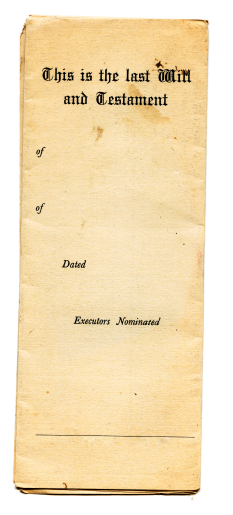 If you’ve never been in a situation before where you, your spouse, or someone you are closely aligned with has been named a beneficiary, you might not be aware of the procedure that is followed when someone dies and leaves a last will and testament. Who is entitled to a copy of the last will and testament after the testator dies? When is the last will and testament a public record?
If you’ve never been in a situation before where you, your spouse, or someone you are closely aligned with has been named a beneficiary, you might not be aware of the procedure that is followed when someone dies and leaves a last will and testament. Who is entitled to a copy of the last will and testament after the testator dies? When is the last will and testament a public record?
Who Is Entitled to a Copy of the Will After the Testator Dies?
Typically, the estate attorney will determine who is to receive a copy of the will. If state laws exist regarding this matter, they must be followed. In general, the following people are entitled to receive a copy of the will if they want one:
· The personal representative who is named within the will
· The beneficiaries who have been named in the will
· The accountant for the estate
· The successor trustee if one exists for a revocable living trust
· Federal and state governments
· Department of Public court records
The Personal Representative
The Personal Representative of the testator is entitled to receive a copy of the last will and testament of the deceased individual. He is responsible to settle the estate and dole it out to the beneficiaries. In order to complete these duties, he must have a complete understanding of his responsibilities which he can get by reading the will.
Beneficiaries Who Have Been Named in the Will
Anyone who is named as a beneficiary within the will is entitled to receive a copy of it. Since a formal reading of the will typically does not take place, it is important for each beneficiary to be able to see what they are to inherit.
Guardians
If a guardian has been named for a minor child or for a disabled adult, the guardian should receive a copy of the will so that he can fully understand the inheritance of the person for whom he holds this position.
Accountant for the Estate
If an accountant for the estate exists, he should receive a copy of the will so that he is better able to complete his instructions in regard to the payment of estate debts, estate taxes, and income taxes. He must also be notified as to the role of the personal representative in the payment of such bills as well as other duties such as claims or lawsuits that have been filed against the estate. Additionally, his duties might involve the apportionment of the properties and assets of the estate among the beneficiaries.
Successor Trustee for a Revocable Living Trust
If a Revocable Living Trust exists and it wasn’t fully funded, then the successor trustee named in the pour over will should receive a copy of this document. He will need it to go through probate.
Federal and State Governments
Since most estates are taxable for both state and federal estate tax reasons, a copy of the last will and testament must be submitted along with the tax return for the estate. If the state does not impose an estate or inheritance tax, a copy of the last will and testament will not need to be submitted to the state.
Public Court Records
Last wills and testaments are public records if they are filed for probate. Therefore, it is available for anyone to read once it has been properly filed for probate. Although it is quite rare to have the court records sealed, it is possible to have this scenario occur. Typically, it is done when the testator is quite infamous and the beneficiaries wish to protect their identities. The decision is ultimately left up to the probate judge.
